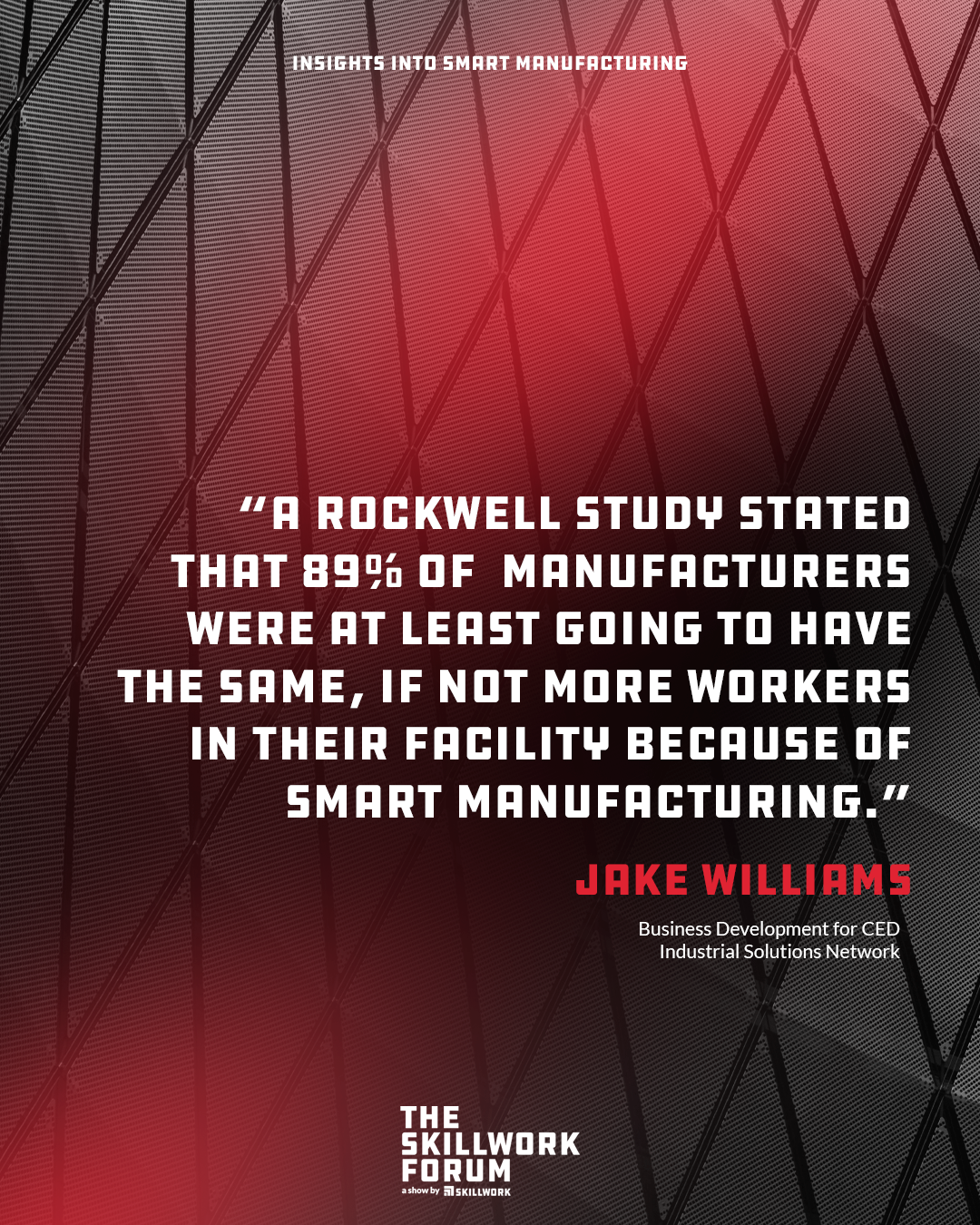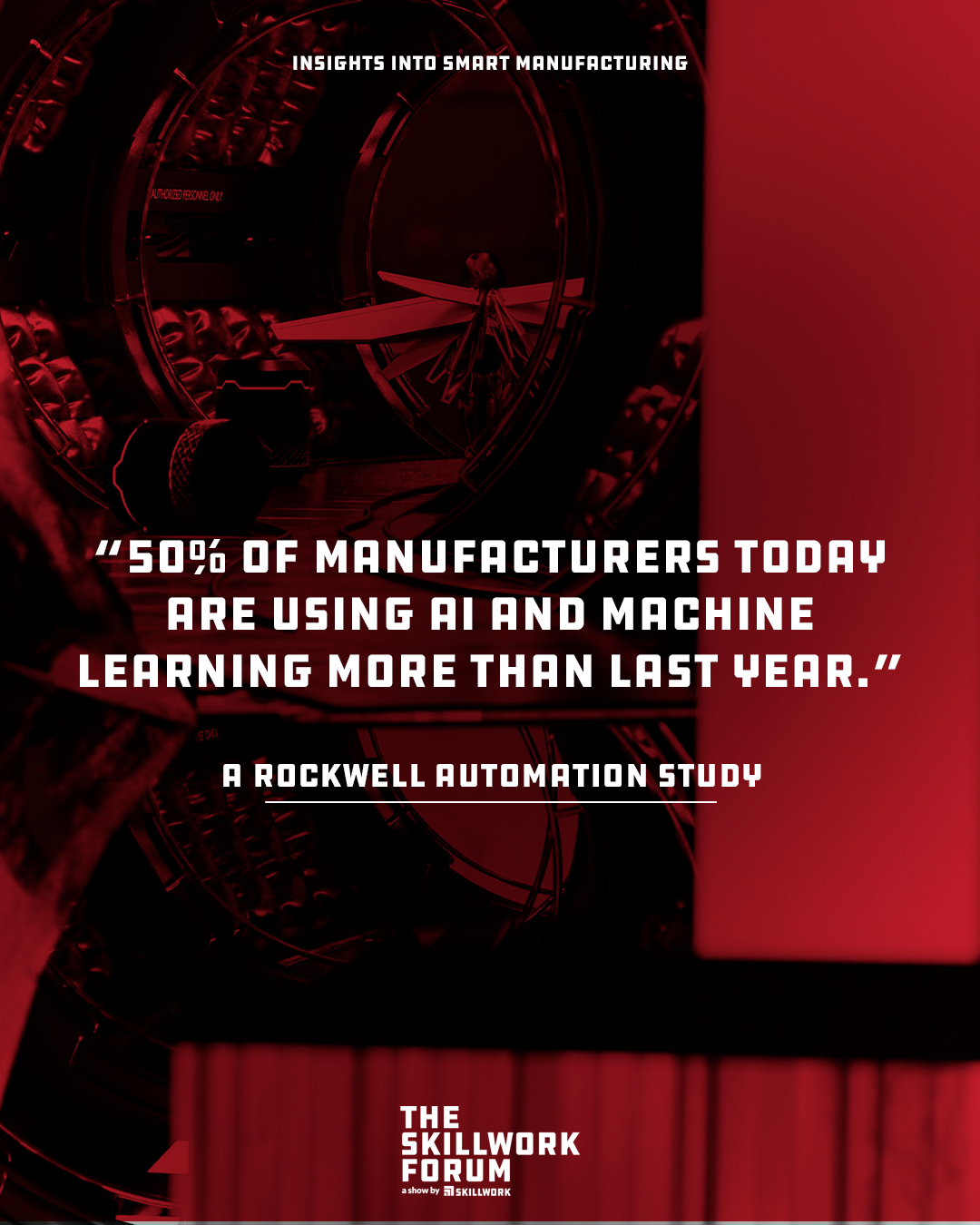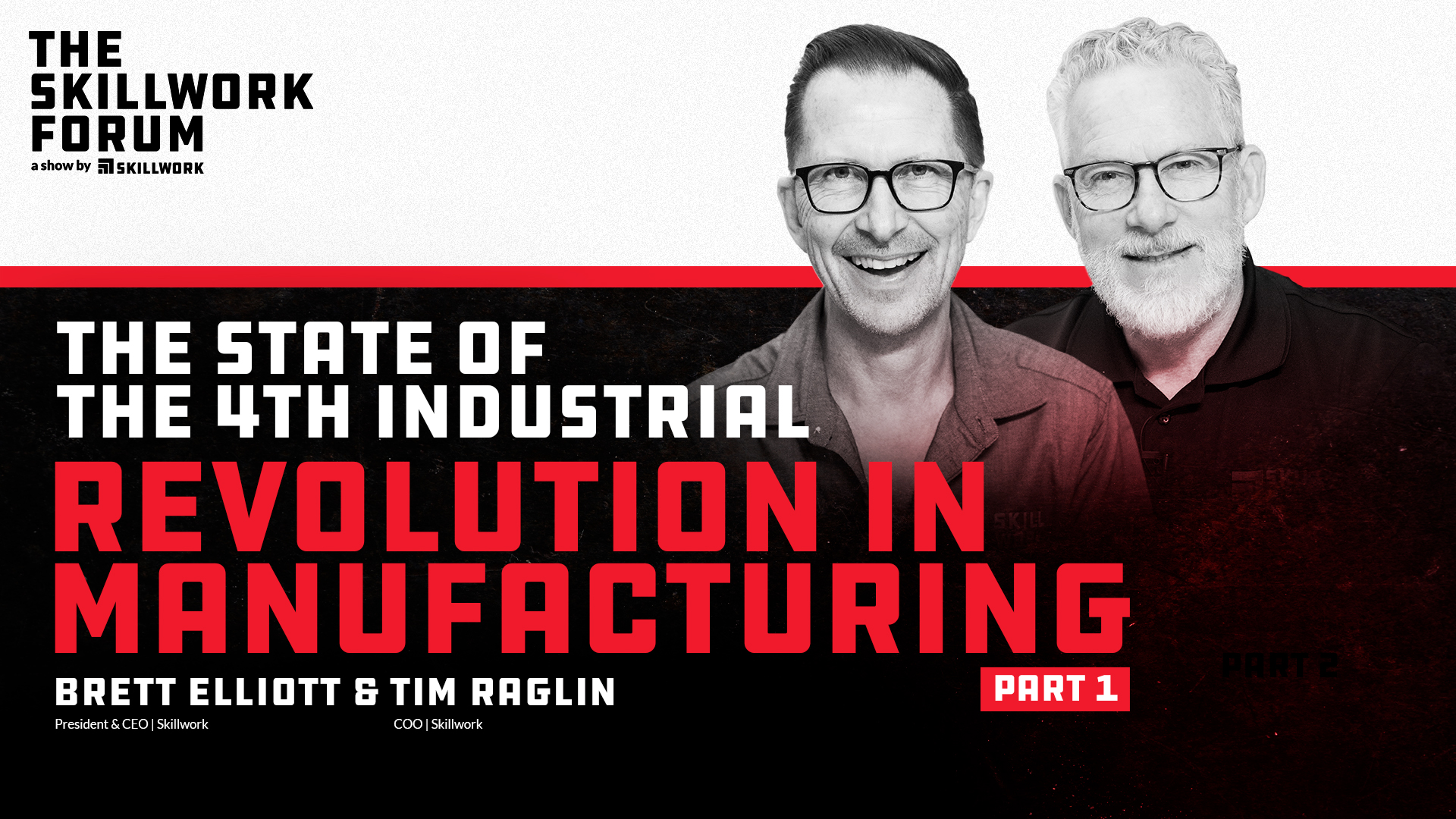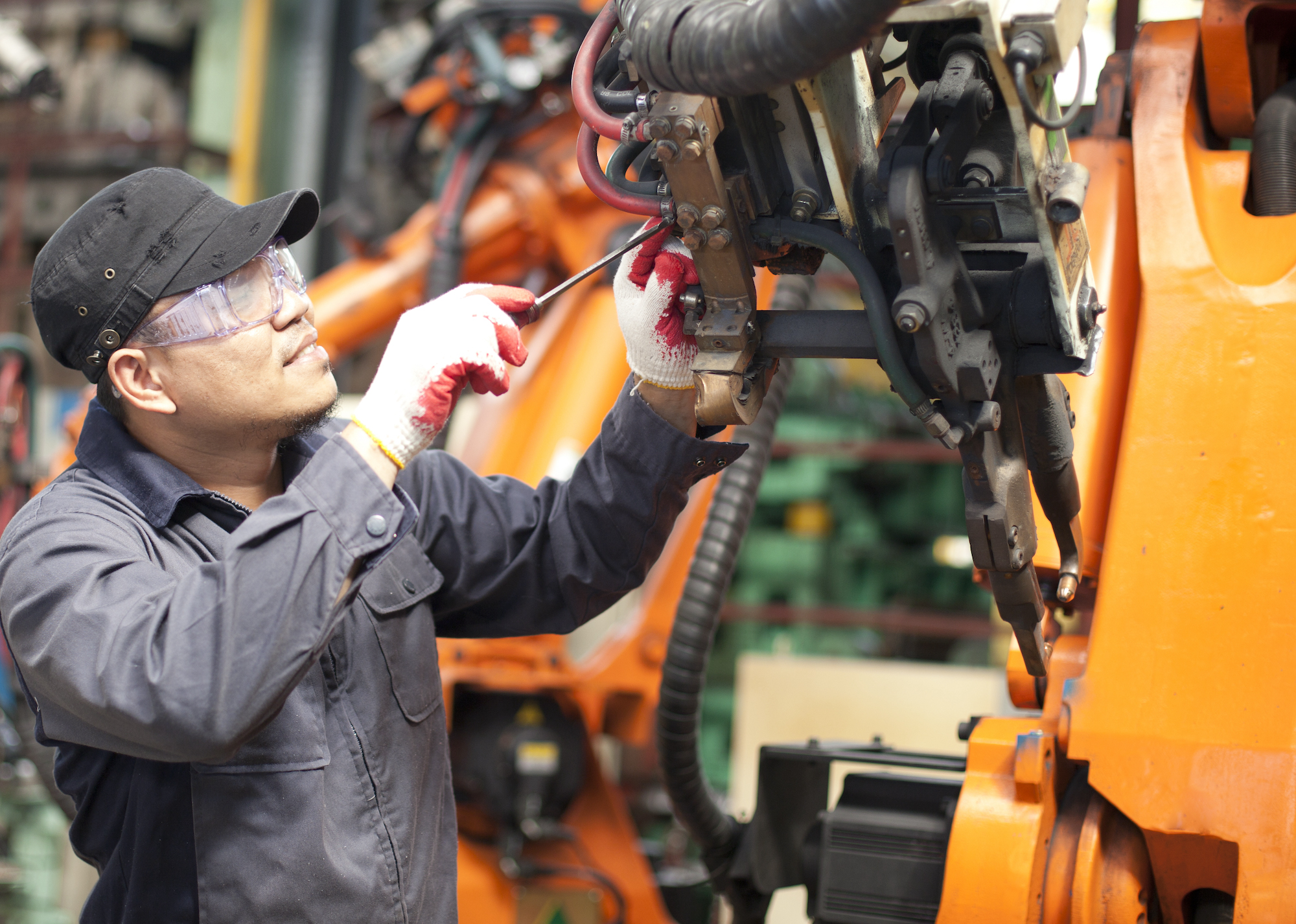What Is Smart Factory Automation?
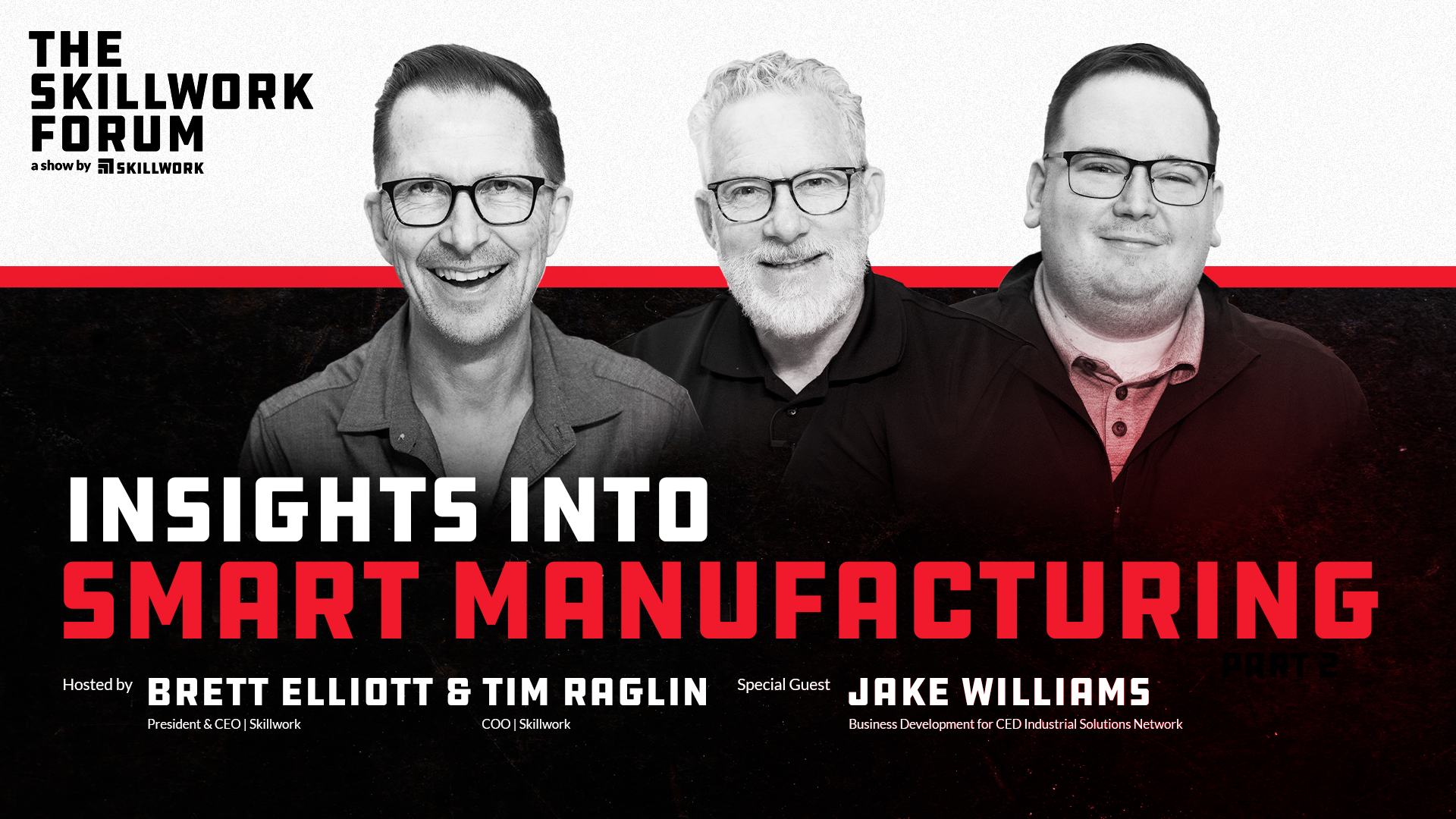
Jake is a customer-focused guy who helps manufacturing leaders try to solve some of the biggest challenges that they're faced with today. In short, he walks into a plant and says, “Hey, you're running a plant that was designed and built 30 years ago. Your competitors down the street or across the world are doing it differently. We can help you get there, protecting your operations and people for the next 30 years.”
We brought Jake on the show to talk to us a little bit about the future of automation in manufacturing. Let’s start by defining our terms.
What Is Intelligent Manufacturing?
Intelligent or “smart manufacturing” has really picked up steam over the last 20 years as people adopted automated manufacturing technology. We've seen a big change from islands of automation to integrated systems.
Smart manufacturing ties into all the buzzwords you hear in manufacturing: Industry 4.0, smart factory automation, data-driven decisions, etc. But the best way to think about it is by comparing smart manufacturing to the nervous system in your body; you have all these stimulants that send messages to your brain.
In manufacturing, we've had left hands, right hands, feet on the plant floor, etc., that all interact uniquely, but they don't talk. Smart manufacturing introduces a brain to those systems. Now, when your left hand does something, your right hand knows that your right hand can do something else.
Smart manufacturing aims to improve efficiency and decision-making by connecting machines and systems that previously operated independently. This allows for real-time adjustments based on factors like temperature, humidity, and throughput.
One challenge of a smart manufacturing system is processing the immense amount of data it generates. Many software companies have developed comprehensive data suites that capture all data points, but not all data is valuable for decision-making. The key is to identify and record the most important variables that can improve quality, increase throughput, and optimize overall manufacturing processes.
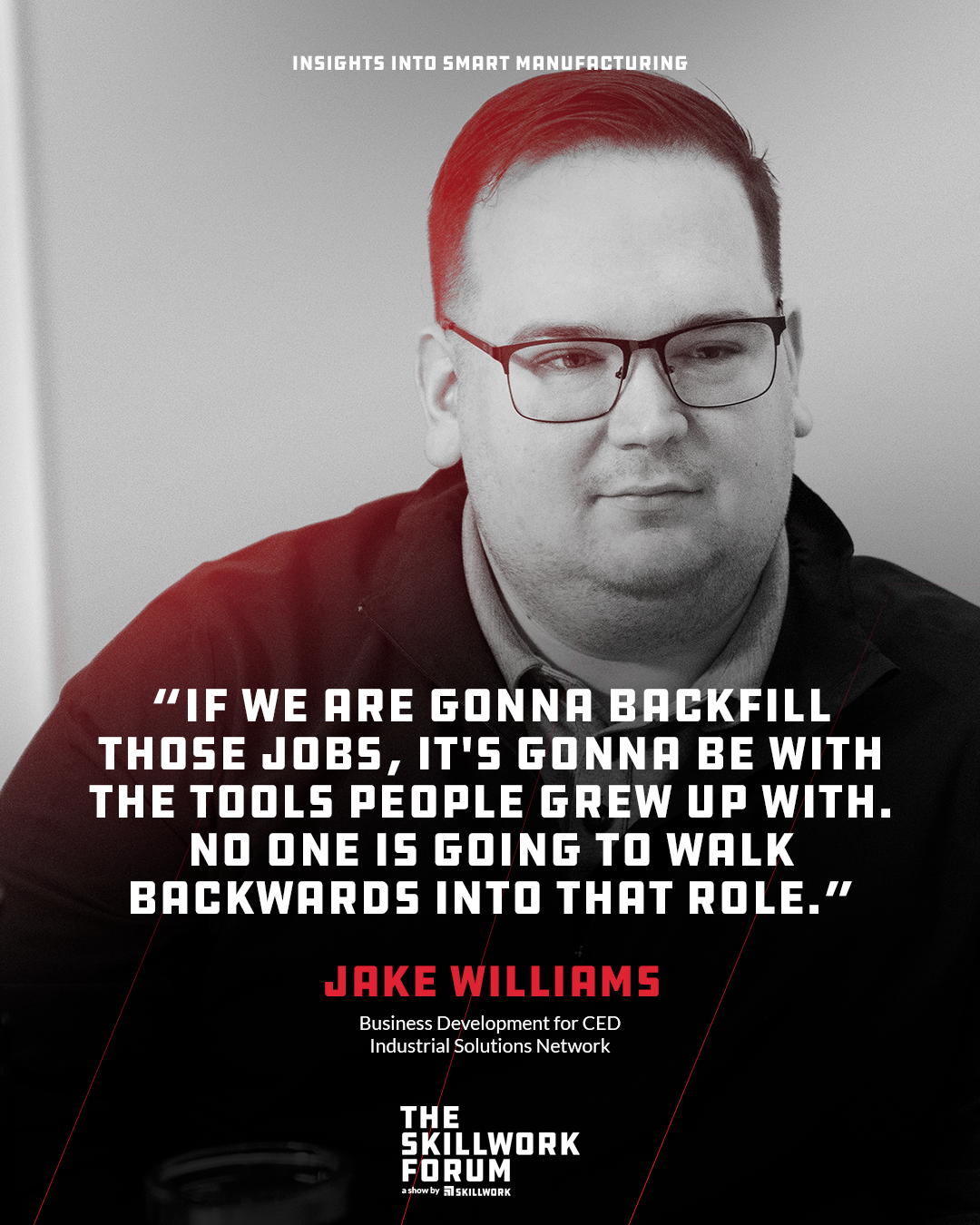
Embracing Automation in the Manufacturing Industry
The general business case behind investing in automated manufacturing technology is that it improves efficiencies. The reality, though, is manufacturing and automation technology can help your business in plenty of other ways, too.
One example is improving safety. You might have a task that you can automate and improve efficiency, but it also makes it safer by stepping someone away from something that might put them at risk. Another example is by looking at a manufacturer that’s integrating AI and robotics into their welding process to improve quality.
Automation is not limited to just the manufacturing floor; it can be integrated into an end-to-end ecosystem, affecting supply chains, customer orders, and customization. This enables businesses to adapt to changing customer demands, such as the shift toward made-to-order vehicles in the automotive industry.
While there are many advantages of automation in manufacturing, security is by far the biggest external risk factor that smart production manufacturers will face. The cybercrime industry, not cybersecurity, but the cybercrime industry, those who profit off of security intrusion, is an ever-growing business.
Can you afford to be compromised? It’s worth the five hours of downtime to upgrade your systems if it’ll save you from being hacked for 22 days.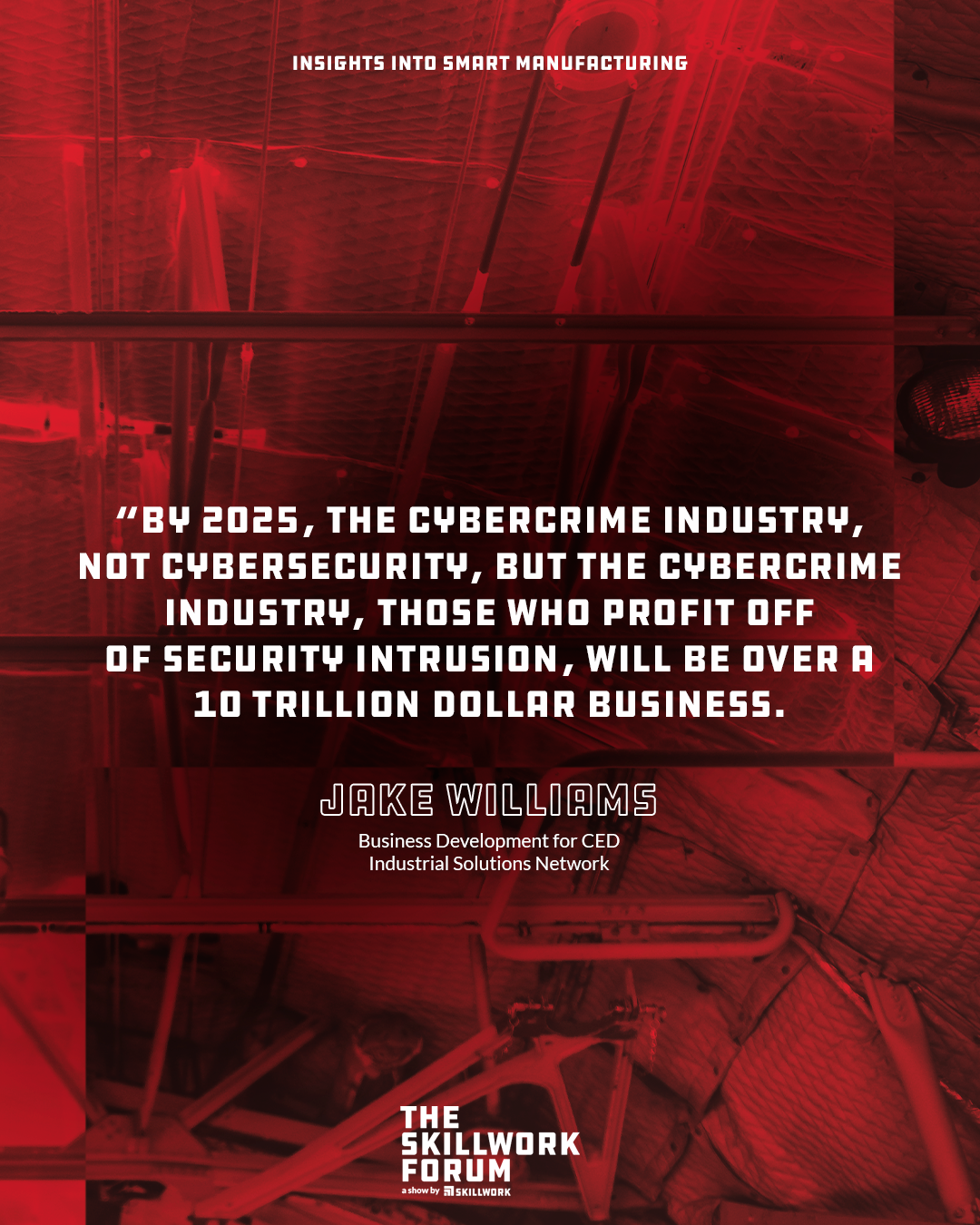
Prepare Your People for the Future of Automation in Manufacturing
When Jake walks into manufacturing plants as a consultant, everyone from the CEO to the person on the third shift vocalizes, “We need more people.” But it turns out, “They need more experience and expertise, not just bodies,” Jake says. If you peel back that layer, the answer becomes, “We need more training and upskilling.”
People who have run a plant for the last 20 years need to learn how to run that plant for the next 10 years. And then there needs to be a continuation of training to create a surplus of people coming up next to learn where the plant is currently as systems upgrade and improve.
While some may argue that automation in manufacturing is replacing workers, which is a valid concern, it will increase the need for skilled tradesmen who can program, repair, and troubleshoot. Jake believes that manufacturers will employ more people due to the efficiencies and growth brought about by smart factory automation.
Don’t be afraid of it, move towards the future of automation in manufacturing. Investing in it will help your plant stay competitive and be more attractive to the next generation.
We really appreciate you taking the time to listen to us here on The Skillwork Forum! Reach out to us if you have any questions, and we can even hook you up with Jake and some of his cohorts that he works with, whether here in the Midwest or anywhere across the country. God bless.